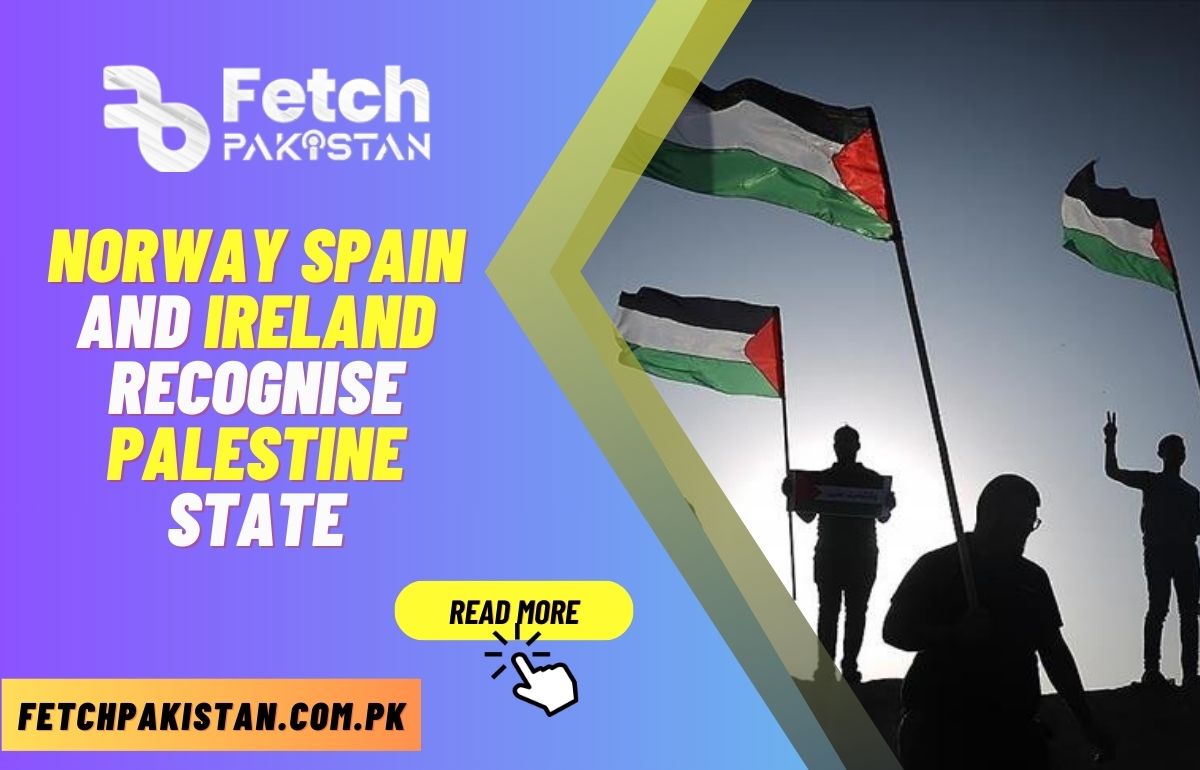Spain, Ireland, and Norway have officially acknowledged the existence of a Palestine state, aiming to redirect focus towards finding a political resolution to the Middle East conflict. By uniting in this action, they aim to inspire other European nations to do the same, fostering diplomatic efforts that could facilitate a ceasefire in Gaza and the liberation of hostages held by Hamas.
However, Israel has vehemently opposed this move, accusing the three countries of endorsing terrorism. Consequently, Israel has recalled its ambassadors from Ireland, Norway, and Spain, while also issuing formal reprimands to their envoys in Tel Aviv. Additionally, all three envoys were summoned to Israel’s foreign ministry and publicly shown footage of the October 7 attacks.
The recognition of Palestine by these nations adds to the diplomatic pressure on Israel, especially following international court rulings demanding an end to IDF operations in southern Gaza and implicating Prime Minister Benjamin Netanyahu in war crimes. Furthermore, Western countries have intensified sanctions on Israeli settlers in the occupied Palestinian territories.
Typically, the diplomatic recognition process involves a formal exchange of credentials with the Palestinian Authority in Ramallah, leading existing consulates or missions in the West Bank or East Jerusalem to upgrade into formal embassies, with representatives assuming the status of full-fledged ambassadors.
Recognizing a Palestinian State: Understanding the Implications
All three nations affirmed their recognition of a Palestinian state based on pre-1967 borders, with Jerusalem designated as the capital for both Israel and Palestine. In Ireland, the Palestinian flag was hoisted above the parliament as lawmakers dedicated four hours to discussing the matter. Ahead of the formal decision by the Cabinet, Prime Minister Simon Harris described it as a pivotal and significant step. He expressed hope that other European nations would follow suit, emphasizing the importance of leveraging all available means to promote a ceasefire.
Mr. Harris underscored the significance of the moment, highlighting that it sends a powerful message globally about the practical steps countries can take to preserve the vision of a two-state solution amidst ongoing challenges. Meanwhile, as Norway’s recognition came into effect, Foreign Minister Espen Barth Eide hailed it as a momentous occasion for Norway-Palestine relations.
DIFFERENCES WITHIN THE European Union
Recognizing Palestine as a state has caused disagreement among the 27 European Union countries.
Many have seen formally recognizing Palestine as the goal of peace talks between Israel and Palestine for many years.
While some Western nations and Washington say they’re ready to recognize Palestine eventually, they want to solve tough issues like Jerusalem’s status and final borders first.
Recent violence in Gaza has brought back calls for Palestinians to have their own country.
Now, 145 out of 193 countries in the United Nations recognize Palestine as a state.
In 2014, Sweden was the first EU country to do so. Before joining the EU, six other European countries recognized Palestine: Bulgaria, Cyprus, the Czech Republic, Hungary, Poland, and Romania.
On October 7, Hamas fighters attacked southern Israel, killing over 1,170 people, mostly civilians. They also took 252 hostages, with 121 still in Gaza. Israel says 37 of them have died.
In response, Israel has attacked Gaza, killing over 36,000 people, mostly civilians, according to Gaza’s health ministry, run by Hamas.

Mudassar Rasool is a seasoned professional with over 8 years of experience in education content writing. He has contributed 100% of the content on FetchPakistan.com.pk, focusing on categories such as Education & Jobs Updates, Results, Merit Lists, and Roll Number Slips. His expertise also extends to technology and telecom sectors, allowing us to deliver comprehensive insights across business, automotive industry, startups, sports, education, news, and more. Mudassar Rasool’s contributions significantly enrich this platform, enhancing coverage and depth across diverse fields.











